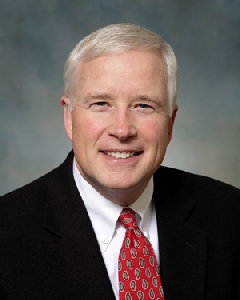
ORLANDO, July 1, 2013 /
Christian Newswire/ -- From the blog of Dr. Don Sweeting (Chief End of Man):
WORLDVIEW CLASH AND THE REPEAL OF DOMA
Last week, the Supreme Court issued rulings that boosted the cause of same sex marriage by a 5-4 decision, and ruled that the Defense of Marriage Act (DOMA) was unconstitutional.
This is a major decision that will have long term impact. The court accelerated the advance of gay marriage in the US, and decided that defining marriage as the union of one man and one woman is unconstitutional.
No Christian should be unaware of this decision or its implications.
But rather than read articles about the Supreme Court ruling, I read the entire 76 page decision myself. I slogged through all 76 pages of the complete decision—majority and dissent, in order to get a firsthand, undistorted sense of what each side was arguing. Let me summarize what I found—the majority supporting gay marriage, and the dissent opposing it. As you read, see if you can discern the worldview clash taking place among the justices and the two conflicting visions on the court.
First, for the majority who favored gay marriage, equality and freedom are the ultimate values. They view DOMA as unconstitutional for depriving liberty and writing inequality into the law. For the dissent, on the other hand, tradition and Christian morality have greater weight than freedom and equality. It's not that freedom and equality don't matter. But they are valued within the wider framework of a traditional moral order.
Second, the majority argued that the constitution guarantees equality but has no bias on marriage. The dissent, on the other hand, argued that the Constitution's silence on marriage should not be taken as indifference. They do not believe the right to same sex marriage is deeply rooted in our nation's history or tradition. In fact, they argued that no country has allowed same sex couples to marry until the Netherlands did so in 2000.
Third, the majority said DOMA denies rights and privileges to hundreds of thousands. Whereas the dissent loudly argued that enshrining gay marriage as a civil right will discriminate against all those who hold to a traditional view of marriage.
Fourth, the majority emphasized that perspectives on marriage have evolved. They spoke of new insights which "enlarge the definition of marriage." The dissent, on the other hand, underscored that marriage and family is an ancient universal human institution. Justice Roberts said that DOMA defends a definition of marriage which has been adopted by every state in our nation and every nation in the world for virtually all of human history. They added that we do not know the long term consequences of this radical new experiment in marriage and family.
Fifth, the majority argued that homosexuality and homosexual marriage is as acceptable as heterosexuality and heterosexual marriage, implying that Judeo- Christian morality is wrong. The dissent repeatedly differed with the majority on this.
Sixth, the majority opinion said that DOMA was primarily motivated by a "bare desire to harm." DOMA's supporters, they said, demean, injure, humiliate and degrade a class of persons. In other words, the traditional view promotes hateful bigotry. The dissent, however, countered that DOMA was written primarily to defend a view of marriage which sees it as highly beneficial to society. Justice protested that DOMA'S supporters are now being cast as "hateful of the human race."
Seventh, the majority opinion said the federal government has no legitimate interest in marriage and family, and said that this is primarily a matter for states and not the federal government to decide. The dissenting justices did not buy this. They said that government does have a legitimate interest in marriage and family for the well-being of society. Furthermore, they argued the majority was posturing with its "states' rights" justification. Behind their rhetoric is a cloaked federalism, driven by judicial overreach.
Finally, according to the majority opinion, this is a singular ruling that stands on its own. Whereas the dissent said that no one should be fooled. It is only a matter of time before the other shoe drops and this opinion becomes enshrined in constitutional law, and that anyone who opposes same sex marriage will be seen as an enemy of human decency. This ruling, said the dissent, will be used to claim that the traditional definition of marriage has the purpose and effect to disparage and injure the person and dignity of same sex couples.
I would not review a Supreme Court case like this, if I did not think that it will have immense consequences. And while the judicial process has not yet fully run its course on this issue, (the legal battle moves to the states), I think it is heading in the wrong direction. I think the court got this wrong, because ultimately marriage is defined by God's law.
This decision is symptomatic of a disordered liberty, and another indication of how lost our Western world is becoming. But having said this, I am not hopeless. Nor should you be. Truth is truth. God's moral law and order stand. There is an ordered liberty which is good. And Jesus Christ still sets people free!
But the outcome of this ruling will not lead to true freedom, or human flourishing.
Dr. Don Sweeting is the president of the Orlando campus of Reformed Theological Seminary and the James Woodrow Hassell professor of church history. RTS was founded in 1966 and is one of the largest seminaries in the country with campuses in Atlanta, Charlotte, Houston, Jackson, Memphis, Orlando and Washington D.C., in addition to RTS Global Education (US & International) that offers online degrees and classes.

